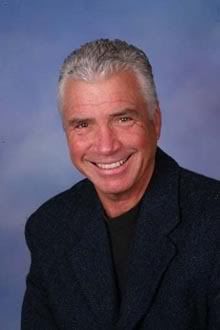
Ok, this guy's accomplishments more than counters the guy in witness protection (h/t to Mike Meeropol for this info)
Martin Lawrence "Marty" Weitzman is a well known-economist and a Professor of Economics at Harvard University. He is among the 200 best economists in the world according to IDEAS/RePEc. His current research is focused on environmental economics, specifically climate change and the economics of catastrophes. Aside from his role as a Professor, he also serves as a consultant to many organizations and is the Associate editor of multiple journals.
He was born on April 1, 1942 in New York City, NY. He received a B.A. in Mathematics and Physics from Swarthmore College in 1963. He went on to receive an M.S. in Statistics and Operations Research from Stanford University in 1964, and then attended Massachusetts Institute of Technology where he received a Ph.D. in Economics in 1967.
\Weitzman's research has covered a wide range of topics including Environmental and Natural Resource Economics, Green Accounting, Economics of Biodiversity, Economics of Environmental Regulation, Economics of Climate Change, Discounting, Comparative Economic Systems, Economics of Profit Sharing, Economic Planning, and Microfoundations of Macro Theory.
Much of Weitzman's current research is focused on climate change. Traditional cost-benefit analysis of climate change looks at the costs of reducing global warming (the cost of reducing greenhouse gas emissions) versus the benefits (potentially stopping or slowing climate change). However, in most analysises, the damages that would stem from dramatic climate change are not taken into consideration. Weitzman has added dramatic climate change to the cost-benefit analysis to show that immediate measures must be taken in regards to climate change regulation.
Weitzman's past research was focused on fixed versus profit sharing wages and their effect on unemployment. He proposed that when firms use profit sharing wages, meaning employees receive higher wages when a company is doing well, firms have lower rates of unemployment and do better during recessions.
Another topic of research that Weitzman is well known for is his study of price versus quantity controls. Weitzman proposed a theory that when faced with uncertainty the relative slopes of the marginal benefits versus the marginal costs must be examined in order to determine which type of control will be most effective. For example, in the case of pollution, the relative slopes of marginal costs and marginal damages must be examined. His research showed that if the slope of marginal costs is steeper, price controls are more effective and if the relative slope of marginal damages is steeper, then quantity controls are more effective.
Weitzman has written two books: The Share Economy: Conquering Stagflation and Income, Wealth, and the Maximum Principal. In The Share Economy: Conquering Stagflation, Weitzman proposes that a main cause of Stagflation is paying workers a fixed wage, regardless of how the company is performing. He introduces an alternate labor payment system as a way of combating stagflation. Income, Wealth, and the Maximum Principal is a book geared towards advanced economic students particularly those who want to be able to formulate and solve complex allocation problems and who are interested in the relationship between income accounting and wealth or welfare.
Weitzman began his teaching career in 1967 as an Assistant Professor of Economics at Yale University. Three years later Martin was promoted to be an Associate Professor and he remained in this position until 1972; at this time he joined the faculty at Massachusetts Institute of Technology in 1972 still as an Associate Professor. In 1974, Weitzman became a Professor at MIT, where he taught until 1989. From 1986- 1989, Weitzman was recognized as a Mitsui Professor at MIT. In 1989, Martin Weitzman became an Ernest E. Monrad Professor of Economics at Harvard University and has remained in this position for the last 18 years. He currently teaches two graduate courses: Ec 2680 Environmental and Natural Resource Economics & Ec 2690 Environmental Economics and Policy Seminar.
\Martin Weitzman serves as a consultant to The World Bank, Stanford Research Institute, International Monetary Fund, Agency for International Development, Arthur D. Little Co., Canadian Parliamentary Committee on Employment, Icelandic Committee on Natural Resources, National Academy Panel on Integrated Environmental and Economic Accounting.
He also serves as Associate Editor of the following publications: Journal of Comparative Economics, Economic Letters, Journal of Japanese and International Economics, Journal of Environmental Economics and Management
* National Science Foundation Fellow, 1963-65
* Woodrow Wilson Fellow, 1963-64
* Ford Foundation Dissertation Fellow, 1966
* Guggenheim Fellow, 1970-71
* Fellow of the Econometric Society, 1976-present
* Fellow of the American Academy of Arts and Sciences, 1986-present
* Association of Environmental and Resource Economists: Special Award for “Publication
of Enduring Quality.”
* Keynote Speaker, 2002 World Congress of Environmental Economists
* Keynote Speaker, 2006 World Congress of Animal Geneticists
 Ok, this guy's accomplishments more than counters the guy in witness protection (h/t to Mike Meeropol for this info)
Ok, this guy's accomplishments more than counters the guy in witness protection (h/t to Mike Meeropol for this info)

























No comments:
Post a Comment